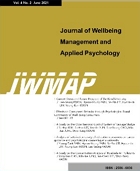- 권한신청
- E-ISSN2586-6036
- KCI
The Role and Necessity of Public Health Services in a Remote Area
Abstract
Purpose: This study aims to investigate the national obligation of public health support for residents in medically vulnerable areas in Korea, and to propose a suitable model for public health institutions in this region. Research design, data, and methodology: A survey targeting residents was conducted from August 10 to August 17, 2021, with a sample size of 177 general citizens. The survey utilized a structured questionnaire administered online through Google, employing convenience random sampling. After an editing process to ensure data accuracy, the final dataset of 174 valid samples underwent encoding, coding, and cleaning using the IBM SPSS Statistics 22.0 program for analysis. Results: Health status revealed a moderate level, and 63.8% reported having chronic diseases, particularly prevalent among the elderly. External healthcare institutions were commonly utilized, with proximity and competence of doctors being primary reasons. Respondents expressed a need for improving the public health and medical system, emphasizing the establishment of a County Health Centre and expanding medical departments. Conclusions: In this region, the region's unique challenges, including education, employment, population decline, aging, and transportation, require multidimensional efforts and urgent intervention by public entities. Long-term strategies involve considering the establishment of a health and medical institute, adjusting health centre resources to local realities, and fostering a cooperative system for collaboration among residents and institutions.
- keywords
- National Public Health, Vulnerable Areas, Role, Necessity, Suitable Model
- 다운로드 수
- 조회수
- 0KCI 피인용수
- 0WOS 피인용수














